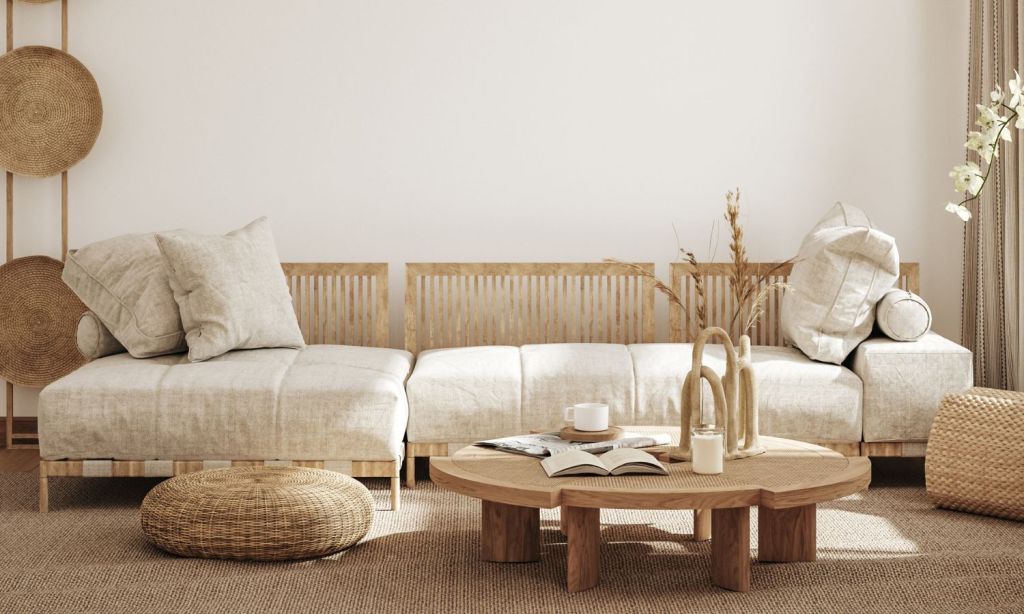Products featured are independently and objectively selected by our editors. From time to time, things you buy through our links may earn us an affiliate commission.
When used to describe a home aesthetic, ‘Japandi’ is a mix of Japanese rustic minimalism interior design and Scandinavian functionality, together focusing on simplicity, natural elements, comfort and sustainability.
The Japandi style is all about a simple look that’s both beautiful and very functional, according to Fiona Gould, stylist at interiors brand House of Rohl. She says the key to a Japandi look is a mostly neutral palette of soft, warm colours like sand, oat and cream, with small touches of black.
“The trick to nailing the Japandi look is to combine layers of texture and relaxed finishes for that Hygge influence,” Gould says. “Think handmade tiles, textured plaster, timbers, wicker and chunky, cotton towels. The result should be very calm and welcoming. Combine this cosy base with hints of modern simplicity.”
age says some key elements of the home aesthetic are calming, tranquil and peaceful neutral palette, beautiful craftsmanship with an emphasis on quality, handmade pieces and natural materials and simple, minimalist designs and shapes.
Related: Get a Year’s Worth of Interiors Inspo from These Best-Designed Homes in Aus
Related: The Best Australian Homewares Brands, According to Someone Who Lives for 10/10 Interiors
Some interior designers say Japandi goes even beyond how a home looks. “This design style and principles truly support a healthy, meaningful lifestyle,” interior designer Shanty Wijaya told Architectural Digest. “It teaches us to find beauty in imperfection, form deep connections to the earth and nature, and enjoy the simple pleasures of life.”
Laila Rietbergen, creator of Instagram account @japandi.interior and author of book Japan Living, points out that what the two styles have in common is that people in both countries love to spend time in nature and bring nature into their home, which is reflective in both designs.
“This resonates not only by using natural materials like wood and linen, but also in the use of organic shapes and combining different shapes,” Rietbergen tells AD.
Some easy to way to add Japandi to your home, according to Spruce Magazine and aside from the obvious purchasing pieces in simple, minimalist shapes, are to incorporate muted colours with hints of pale green, bring more plants and greenery into your home and reduce clutter with the help of baskets and folding screens.
Scroll down to shop of our picks for the best Japandi homewares.
Irregular Mirror (50 x 70 cm), $303.75
Beige Minimalist Wall Art Unframed, $131.87
No 22 Travertine Tray, $129
RJ Living Niche Ottoman Large (Copenhagen Grey), $799
Read more stories from The Latch and subscribe to our email newsletter.

